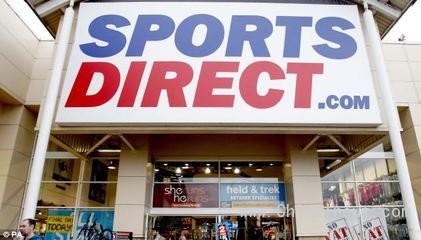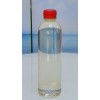在韦斯特菲尔德—伦敦东部的一家大型购物中心的一家运动服饰专卖店,并不是一个明确的旅游景点。
但对于来自新西兰的Roy 和Viv Robertson来说,在Sports Direct挥霍一番是他们此次在英停留期间的一件大事。
除了拜访他们在伦敦工作的女儿之外,Robertson夫人表示这家店就是我们来这的目的,而此时他的丈夫正提着装满POLO衫和运动鞋的包包。
许多人也像他们一样对此及其热衷。
Sports Direct无疑是成功的。在2009年至2014年间,英国的运动服装市场仅有细微地增长。
然而,在相同的时间内Sports Direct的收益因合并而有很大的增长,提高了约40%,直逼2.2 billion。
虽然经过了三轮争取和与股东们的紧张对峙,
这位性格古怪的创始人兼执行副主席Mike Ashley还能在7月2号成功地为他和近3000名合格的员工争取到一笔丰厚的奖金。
相较于英国其他零售业所出现的不景气,Sports Direct的成功便更为突出。
根据一个调查公司—地方数据公司,近14%的零售地段是空滞的。

然而Sports Direct的成绩不断看涨,尤其是采取了偶尔打超低折扣的措施后。
标志有大甩卖这种类似义卖活动的横幅经常挂在其商店中。
一个零售店Lillywhites在2002年被Sports Direct合并,这个曾用来囤积豪华伦敦百货商店的优质运动商品。
现在它‘堆得高,卖的贱',分析师Matthew Hopkinson颇有怨词道。
Sports Direct成功的另一个因素在于它卖的是什么。
像是Lillywhites,这些老旧但应人尊重的品牌,再如Lonsdale和Dunlop,这些以精明的营销方式重新复活的品牌。
这都使得Sports Direct能保持低价格高利润。
不像公司在被接入管理之后并购的JJB Sports,其连锁店在店铺租约的谈判上通常也是很精明的。
无利润可言的店铺会被迅速关闭。
该集团的一条非常精明的供应链是其另一个制胜法宝。
该集团的首席执行官表示,相较于使用第三方公司,Sports Direct 更偏爱亲自管理运营其物流。
这降低成本,减少货物经多方过手。
并且它也有利于提高在线销售,该销售方式正不断成熟。(更多行业资讯请点击浏览)
这一切背后的操盘手便是Ashley先生,这位于1982年以10,000 的贷款创立该业务。
他同时也是纽约斯卡尔足球俱乐部的老板,相较于其他的公司创立人他有更广泛的公众形象。
YouTube上一则显示他在一分钟之内干掉一品脱啤酒的视频已经被点击将近九万次。
分析师们羡慕的低语:他真是一个天才。

然而这样的好时候能否持续下去还是个问题,特别是若Ashley在其生意上退一步。
随着经济复苏,它将更难在零售方面找到好的交易,来自Conlumino的咨询顾问Matt Piner说。
这可能意味着任何更深远的扩展将踏出英国的范围。
但是公司似乎在试图摆脱其廉价又曾辉煌的根基上赌一把。
它装饰自己的店铺,于今年晚些时候在Debenhams—一个连锁的百货商场,给出一系列特许权。
位于伦敦牛津街的新的旗舰店又大又洋气,在专业的运动训练衣裤的旁边还摆出了皮鞋和更昂贵的t恤。
这可能会吸引新客户,相较于从现有客户压榨更多的现金,这样的举措无疑是个更好的选择。
但这也给公司带来了与大型时装零售店更大的竞争。
除非它能在进入这个新市场的同时保持低价,否则那些像Robertsons的忠实粉丝会变得越来越少。
(更多行业资讯请点击浏览)
But for Roy and Viv Robertson, from New Zealand, splurging in Sports Direct is one of the highlights of their stay.
In addition to visiting their daughter, who works in London, the shop is what we came for, says Mrs Robertson,
as her husband clutches a bag bulging with polo shirts and trainers.
Their surprising enthusiasm is widely shared. Sports Direct is hugely successful.
Between 2009 and 2014 the sportswear market in Britain grew only slightly in value.
Yet over the same period the revenue of Sports Direct, boosted by acquisitions, increased by around 40% to 2.2 billion.
Small wonder the firm's idiosyncratic founder and deputy executive chairman, Mike Ashley,
succeeded on July 2nd in securing a fat bonus for himself and around 3,000 eligible employees—albeit at the third time of asking and after a testy standoff with shareholders.
Sports Direct's success is all the more remarkable in view of the devastation that has occurred elsewher in British retailing.
Around 14% of retail lots are estimated to be vacant, according to the Local Data Company, a research firm.
Yet Sports Direct has thrived, not least by taking the measure of the times with relentless discounting.
Signs boasting mega-deals hang throughout its shops, which often resemble jumble sales.
Lillywhites, a retailer acquired by Sports Direct in 2002, used to be a posh London department store stocked with the finest sporting goods.
Now it is pile it high, sell it cheap, sniffs Matthew Hopkinson, an analyst.
Another ingredient of Sports Direct's success is that it makes much of what it sells, under a variety of brands.
Like Lillywhites, these tend to be tired but venerable names, such as Lonsdale and Dunlop, which have been revived through clever marketing.
This allows Sports Direct to keep prices low but margins high.
And unlike JJB Sports, parts of which the company bought after it entered administration in 2012, the chain is generally cannier about negotiating store leases, too.
Unprofitable stores are shut down swiftly.
The group's remarkably lean supply chain is another advantage.
Rather than use third-party firms, Sports Direct tends to look after most of its logistics itself, says Dave Forsey, the group's chief executive.
This cuts down costs, reducing the number of hands goods pass through.
And it helps boost online sales, which are growing.
Behind nearly all of this is Mr Ashley, who founded the business with a 10,000 loan in 1982.
Also the owner of Newcastle United football club, he has a far higher public profile than most company founders.
A video on YouTube which appears to show him drinking a pint of beer in less than a minute has been watched nearly 90,000 times.
Analysts adore him: He's a genius, coos one.
Yet some doubt that the good times can continue, particularly if Mr Ashley were to take a step back from the business.
As the economy recovers it will become harder to find good deals on retail sites, says Matt Piner of Conlumino, a consultancy.
This may mean that any further expansion will have to be outside Britain.
But the firm also seems to be betting on a move away from its cheap and cheerful roots.
It is sprucing up its shops, and later this year will be opening a series of concessions in Debenhams, a chain of department stores.
The new flagship shop on Oxford Street in London is large and sleek, and sells brogues and more expensive T-shirts alongside tracksuits.
This may attract new customers, which would be a better option than just trying to squeeze more cash out of existing ones.
But it also brings the company into ever greater competition with big general fashion retailers.
Unless it can keep down prices as it moves into this new market, loyal fans such as the Robertsons may become rarer.








